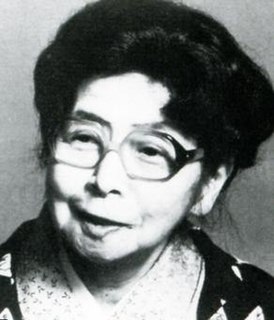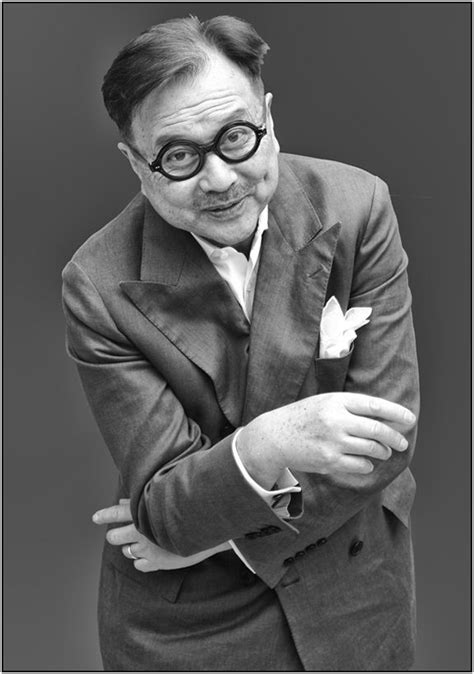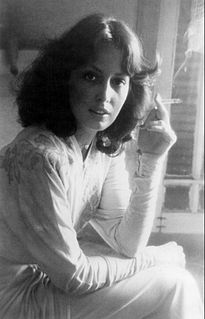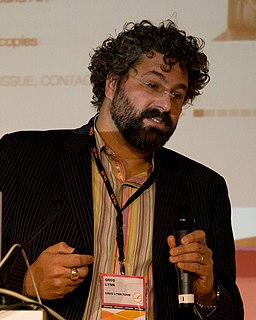A Quote by Barbara Ann Kipfer
Chinese landscape paintings often include tiny figures - as if to emphasize the grandeur of nature of which humankind is one small part. Think of the world in these terms, as larger in scale than the human. This is a healthy corrective to the commonplace view that people own the land, which exists to serve their purposes. Think big and live small.
Related Quotes
Many people think that when we practice agriculture, nature is helping us in our efforts to grow food. This is an exclusively human-centered viewpoint... we should instead, realize that we are receiving that which nature decides to give us. A farmer does not grow something in the sense that he or she creates it. That human is only a small part of the whole process by which nature expresses its being. The farmer has very little influence over that process... other than being there and doing his or her small part.
the leader releases energy, unites energies, and all with the object not only of carrying out a purpose, but of creating further and larger purposes. And I do not mean here by larger purposes mergers or more branches; I speak of larger in the qualitative rather than the quantitative sense. I mean purposes which will include more of those fundamental values for which most of us agree we are really living.
Happiness--a small-scale, endearing, harmonious happiness--surely dwelt here beneath the low-powered lamps in the tiny rooms of these houses. A small-scale happiness and a modest harmony: let a man cry out, let him rage, let him howl with grief with all the power of which he was capable, what more than these could he ever hope to gain in this life?
Of the land which the Romans gained by conquest from their neighbours, part they sold publicly, and turned the remainder into common; this common land they assigned to such of the citizens as were poor and indigent, for which they were to pay only a small acknowledgment into the public treasury. But when the wealthy men began to offer larger rents, and drive the poorer people out, it was enacted by law that no person whatever should enjoy more than five hundred acres of ground.
I am preoccupied with the possibility of creating art which functions in a public situation without compromising its private character of being antiheroic, antimonumental, antiabstract, and antigeneral. The paradox is intensified by the use on a grand scale of small-scale subjects known from intimate situations--an approach which tends in turn to reduce the scale of the real landscape to imaginary dimensions.
The true essence of Chinese culture is sophistication, refinement, the spirit of poetry. The spirit of ink painting and calligraphy lives on forever. Calligraphy is more important than painting. Chinese always consider nature. Man is a very small part of nature. That's why in Chinese painting you see huge mountains and man very small, very humble before nature. You must be harmonious and one with nature. You don't fight it. And then there's a bit of a poetry. Of course, it's very complicated, but also very simple.
Expect nothing, live frugally on surprise. Become a stranger to need of pity. Or if compassion be freely given out, take only enough. Stop short of the urge to plead, then purge away the need. Wish for nothing larger than your own small heart or greater than a star. Tame wild disappointment with caress, unmoved and cold. Make of it a parka for your soul. Discover the reason why so tiny human midget exists at all, so scared and so unwise. But expect nothing, live frugally on surprise.
When I was sixteen, I began to think outside the box of my small town. Not that the people in my small town are in a box - they're not! There's a brilliant college there, and I had brilliant teachers from that college. But in terms of a conservative upbringing, which I did have within my own family, I just began to question things and to think for myself.
But I think the goal of all these attacks is the same, which is to seize maximum media attention. Maybe some of these attacks were meant to be small. Some of them might have been failed larger attacks. And some of them are just part of a new strategy of doing lots of tiny attacks, as opposed to one large one.
To go back to architecture, what's organic about architecture as a field, unlike product design, is this whole issue of holism and of monumentality is really our realm. Like, we have to design things which are coherent as a single object, but also break down into small rooms and have an identity of both the big scale and the small scale.





































